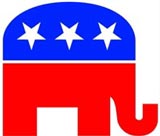
Word came out of San Francisco that a grand jury did not return an indictment against Giants slugger Barry Bonds. The sports and news media did not seem to breathe a collective sigh of relief, and the story was not treated as a hero's vindication. I watch a lot of movies, and this surprised me. To me, Barry Bonds is a Hollywood anti-hero of the first order. I think we should treat him like one.
To prove my point I've assembled a list of the main reasons people criticize Barry Bonds. After every one of those complaints is a quote from a feature film that successfully counters that line of reasoning.
(1) Barry Bonds is selfish.
"Greed is good." (1987) "Wall Street"
I know that Michael Douglas wasn't talking about baseball, but, darn it, the analogy works. All the pretentious sportswriters and kids in men's bodies who weep at card shows may deny it, but baseball is an individual sport masquerading as a team game.
A player's performance is evaluated by owners, agents, arbitrators, and fans solely according to statistics which unflinchingly and unforgivingly determine the quality of individual performance, especially offensive performance. In the American League there's even a spot for a guy who never has to pick up a glove. We're not too far from the day when a full-time designated hitter gives his acceptance speech as he enters the Hall of Fame. If you're a #3 or #4 hitter, you may not be asked to bunt or otherwise sacrifice an at-bat unless it's the late innings of the seventh game of the World Series. Until then, boosting your stats and helping the team are the same thing. Barry Bonds hits in the #4 spot for the San Francisco Giants. Unless he's making an assist from the outfield (again measurable as an individual statistic), he is not going to be called upon to do anything resembling "sharing". Barry's going after records is good for Barry and it's good for the team.
In "The Fugitive", Tommy Lee Jones is all about getting his man and protecting his record. He tells Harrison Ford that he doesn't care whether or not he killed his wife. Granted, he softens this stance at the end of the film, but, I've always contended that's just an attempt at softening what would otherwise be an incredibly awkward moment between the film's two main characters.
(2) Barry Bonds is surly and often uncommunicative. When he does communicate, he's usually rude.
"There's no crying in baseball!" "A League of Their Own" (1992)
Let's face it, our sports heroes are not now and never have been of the sensitive, tear-at-the-ready variety. We give them a pass when there's a ceremony in their honor. The tears can flow freely at that time and that time only. Even then, they might catch a little ribbing. Just ask Mike Schmidt and Mark Messier. Exceptions are also made for illness. When Lou Gehrig and Mickey Mantle cried, a nation of men cried with them.
When we saw Barry Bonds cry on his reality television show "Bonds on Bonds" it made us, at best, awkwardly uncomfortable. I don't know about you, but I'll take surly Barry over emo-Barry any day of the week. Disregarding issues of bad p.r. and generally poor reviews, I contend that Barry's tears sealed that program's doom. John Wayne basically played the same surly and often uncommunicative character in every movie in which he starred. Yes, even in "The Quiet Man". He's an American icon. There's an airport, complete with larger-than-life statue, named after him in California. Let's stop taking Barry to task for doing the same thing.
(3) We know he's used steroids.
"The Waterboy's a cheater. Cut his head off!" "The Waterboy" (1998)
Just like the character Bobby Boucher, who did not know that his coach had bent the rules to get him on the team, Barry Bonds has stated that he did not know that the substances he took were illegal, performance enhancing substances. We didn't turn on Adam Sandler, neither should we turn on Barry Bonds.
Another point in all of this is that no one likes whistleblowers, unless they're named Donnie Brasco, John Serpico, or Huggy Bear.
Look, Al Pacino was at the peak of his powers in "Serpico", we'd have rooted for him unless he was portraying Hitler.
Johnny Depp always makes the ladies swoon, so we could forgive him in "Donnie Brasco" even while he was diming out, well, Al Pacino.
Antonio Fargas in "I'm Gonna Git You Sucka" could pull off platform shoes with goldfish swimming in them. (I know he didn't actually play a snitch in that one, but he was clearly reprising his Huggy Bear role).
In the case of Bobby Boucher, the title character in "The Waterboy" we forget the coach's indiscretion and instead fixate on the length that the coach of the rival team was willing to go to win the bowl game. Like the classic "snitch" we love to hate, his motives were far from pure.
In Barry's case, baseball's most prominent whistle blower is Jose Canseco. Yes, the same Jose Canseco who dated Madonna when his career was at its apex, and the same Jose Canseco who spent a season on "The Surreal Life" when his career was at (hopefully) its nadir. Jose published a tell-all book about steroid use for the not-so-noble motives of spite and profit. For the record, he never says he personally witnessed Barry taking steroids. He simply says that he noted the signs. I guess these were the very signs the admitted steroid user saw every day when he looked at himself in the mirror.
(4) (a) We know he's cheated on his wife.
"I'm not going to be ignored, Dan." "Fatal Attraction" (1987)
Let me go on record as saying I'm strongly against marital infidelity. Hollywood generally supports me here.
Michael Douglas paid for his infidelity dearly.
The guy in "The Howling" stepped outside for a tryst and ended up getting turned into a werewolf.
Nick Nolte in "Cape Fear" had to camp out on the couch because his wife got reminded of a previous indiscretion.
Don't get me started on the bad things that happened to Wesley Snipes in "Jungle Fever".
Thanks to the revelations by his one-time mistress, we all now know a great deal more about Barry Bonds' private life than we ever wanted to know. She will also be a key witness if an indictment is ever handed down against him. Still, Hollywood has told me that these cheating husbands (except for the guy from "The Howling") are capable of redemption and should be given second chances. Can't we give Barry the chance?
(b) We think he's cheated on his taxes.
"None of them ever want to pay taxes again. Ever." "Armageddon" (1998)
Doesn't Bruce Willis sum up the way we all feel on this one?
I'm not going to get into a whole he said she said thing here. Again, nothing's been proven and those who say Barry's guilty clearly have their own axe to grind.
There are only a few instances in which Hollywood presents the tax man as the hero of the story. In "The Shawshank Redemption", his knowledge of how to beat the clear intentions of the federal tax code eventually helps Tim Robbins escape from prison.
Just remember, to side against Barry on this one means that you're siding with the IRS. Just chew on that for a minute or two.
(5) I just don't like the guy.
"I'm not perfect, but who are we kidding, neither are you. And you want to know what? I dig it." "Wedding Crashers" (2005)
This is really a combination of the four reasons previously noted, plus anything else one can come up with.
One thing Hollywood has definitely taught me is that I can still root for drunkards, murderers, and thieves. We all contribute something and we're all capable of redemption.
Bogart started off "The African Queen" as a drunken layabout. He ended the movie as a heroic newlywed and all it cost him was an old boat and several cases of gin.
Eastwood's Man With No Name often did some very, very bad things. Even when he had a name and had gotten a little soft in "Unforgiven", we're still supposed to root for him despite the bloody crimes he'd committed.
Martin Lawrence nearly made us forget that he was a largely unrepentant jewel thief in "Blue Streak". He portrayed another thief-as-protagonist in "What's the Worst That Could Happen?".
In every role he's been given to this point, Vin Diesel proved that neither talent nor looks were necessary ingredients for stardom. (I'm quite sure that last one's not related to my point, but I've just always wanted to get it out.)
So, the next time you're ready to judge Barry Bonds, think of the times you've been selfish and surly. Think of the times in which you've been tempted to cheat or cut corners. Then think of all the movies you've seen in which this behavior is not only tolerated but actually encouraged. If you can cheer for the leading men in the movies I've mentioned above, then you can certainly find it within yourself to cheer for Barry Bonds.
Play ball!
oba


















